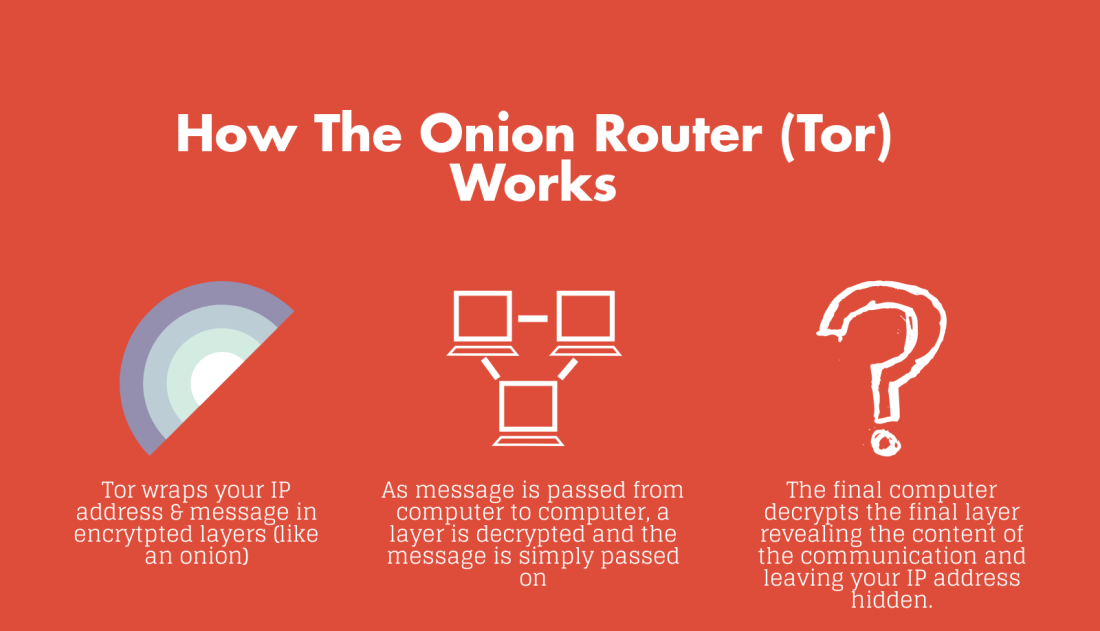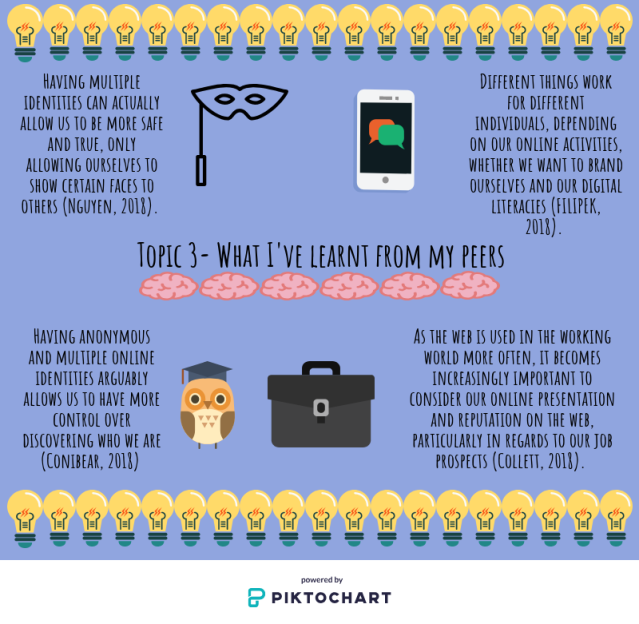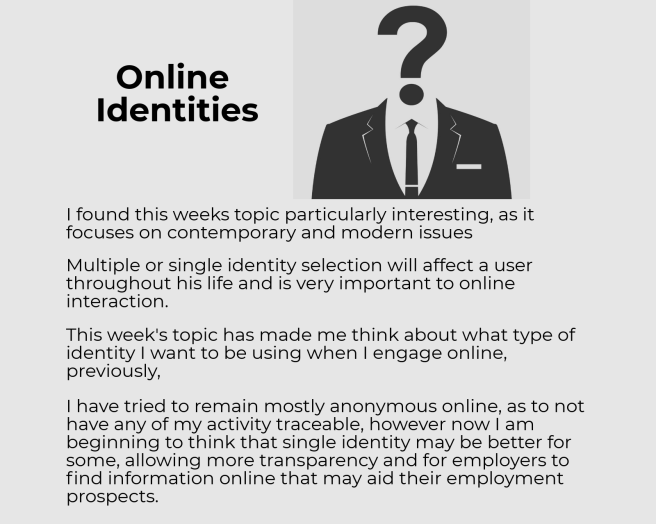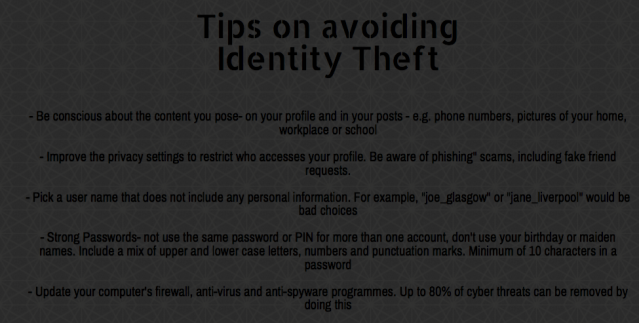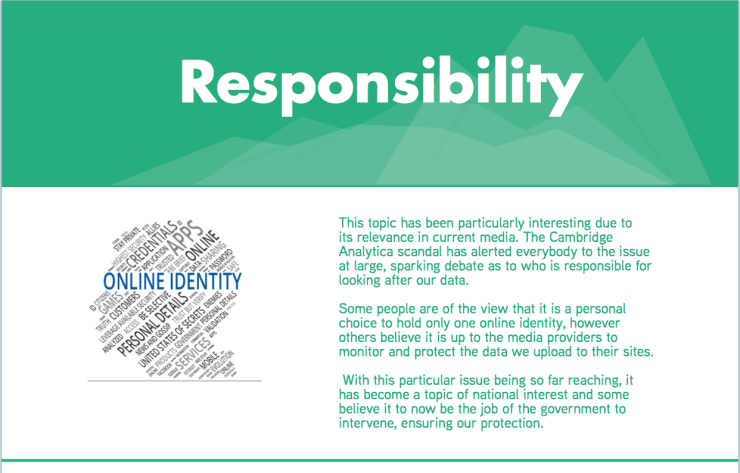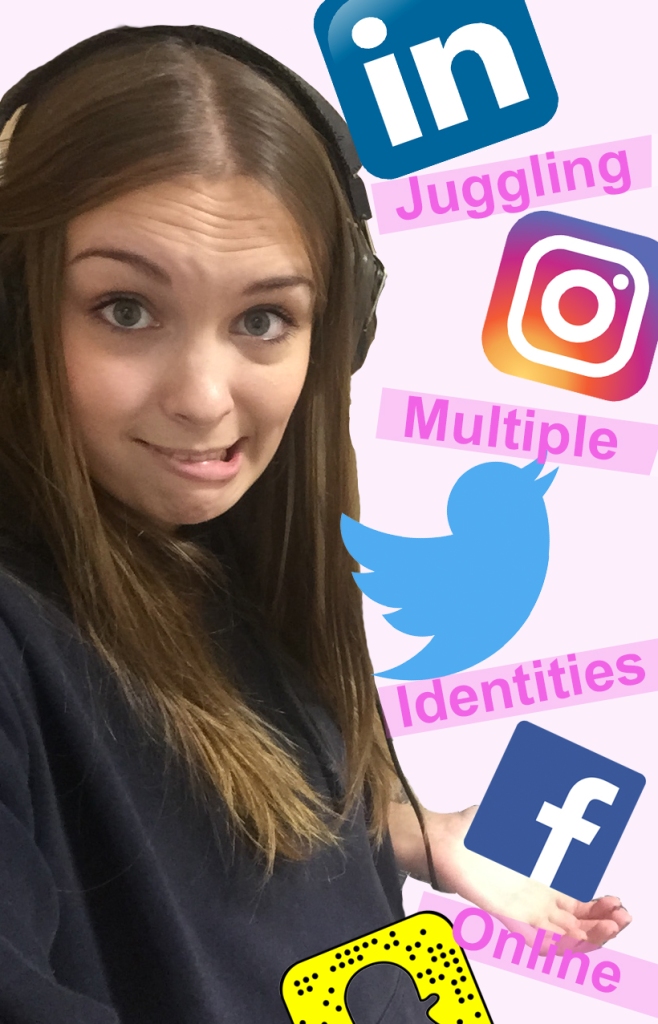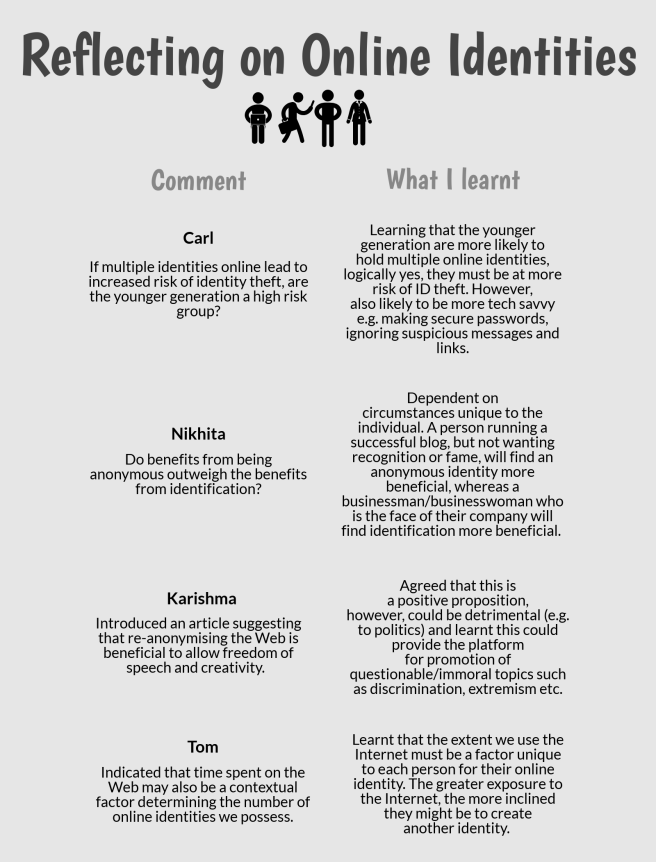
Topic 3: Reflection
Throughout the last few days, my understanding of online identities has largely deepened, owing to interactions with both colleagues’ own posts and comments within my own.
Comments on my Post
Challenging questions posed on my online identities post led to interesting additional research. The table below summarises each comment, in addition to how they shaped my own comprehension.
Continue reading →



